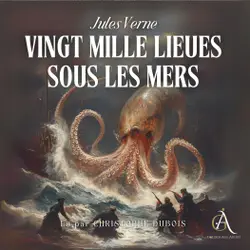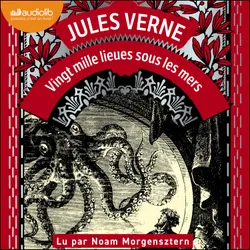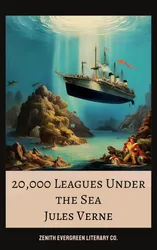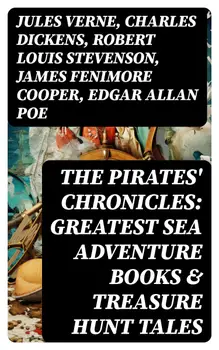Immerse yourself in the turbulent waves of high-seas adventure with 'The Pirates' Chronicles: Greatest Sea Adventure Books & Treasure Hunt Tales,' a formidable anthology that celebrates the rich tapestry of maritime storytelling. The collection deftly spans various literary styles, from the gothic allure of Edgar Allan Poe's mysterious tales to Jules Verne's scientific romances, creating a diverse landscape of narrative ingenuity. These stories invite readers into the thrilling world of pirates, treasure hunts, and adventurous exploits, capturing the imagination through gripping plotlines and vivid portrayals of life on the ocean's edge. A standout piece might marvel at pirate lore's enigmatic charm or revitalize the classic treasure quest trope with linguistic flair and historical depth. The selection brings together an eclectic group of authors who have collectively shaped the literary pulse of seafaring narratives. Figures like Charles Dickens and Robert Louis Stevenson present a vibrant interplay of Victorian sensibilities and rebellious escapades, while others contribute to the rich historical and cultural reflections on seafaring life. The anthology is a confluence of voices that echo the trials and timeless allure of the ocean, reflecting movements from Romanticism to Modernism in the backdrop of their pages, each entry enriching the collection's narrative complexity. Offering an unparalleled array of sea-bound adventures, this collection serves as a perfect vessel for readers to explore the depths of literary exploration and discovery. It is an invaluable resource for gaining insights into the art of storytelling and understanding the human essence drawn to the sea's boundless frontier. Through each tale, 'The Pirates' Chronicles' fosters an engaging dialogue on the enduring allure of maritime adventures, inviting readers to set sail on literary voyages of wonder and intrigue. Whether read for education, a love of history, or sheer enjoyment, this anthology is a treasure chest of narrative jewels waiting to be unearthed.

Twenty Thousand Leagues Under the Sea : A Dazzling Voyage Into the Depths of the Unknown
Jules Verne, Zenith Horizon Publishing
book
Vingt mille lieues sous les mers - Livre Audio
Jules Verne, Livres audio en français
audiobook
Een schot in de lucht
Jules Verne
book
Cinco semanas en globo : La Primera Gran Aventura de los Viajes Extraordinarios
Jules Verne, Zenith Horizon Publishing
book
Vingt mille lieues sous les mers
Jules Verne
audiobookbook
Around the World in Eighty Days : Jules Verne's Timeless Adventure of Speed, Strategy, and Global Wonders
Jules Verne, Zenith Horizon Publishing
book
Vingt mille lieues sous les mers
Jules Verne
audiobookbook
In the Year 2889 :
Jules Verne
audiobook
Around the World in Eighty Days : A Timeless Adventure Novel by Jules Verne
Jules Verne, Zenith Golden Quill
book
20,000 Leagues under the Sea : A Deep-Sea Sci-Fi Adventure with Captain Nemo and the Nautilus
Jules Verne, Zenith Evergreen Literary Co
book
Michel Strogoff - Livre Audio
Jules Verne, Livres audio en français
audiobook
Journey to the Center of the Earth - Audiobook
Jules Verne, Classic Audiobooks
audiobook
